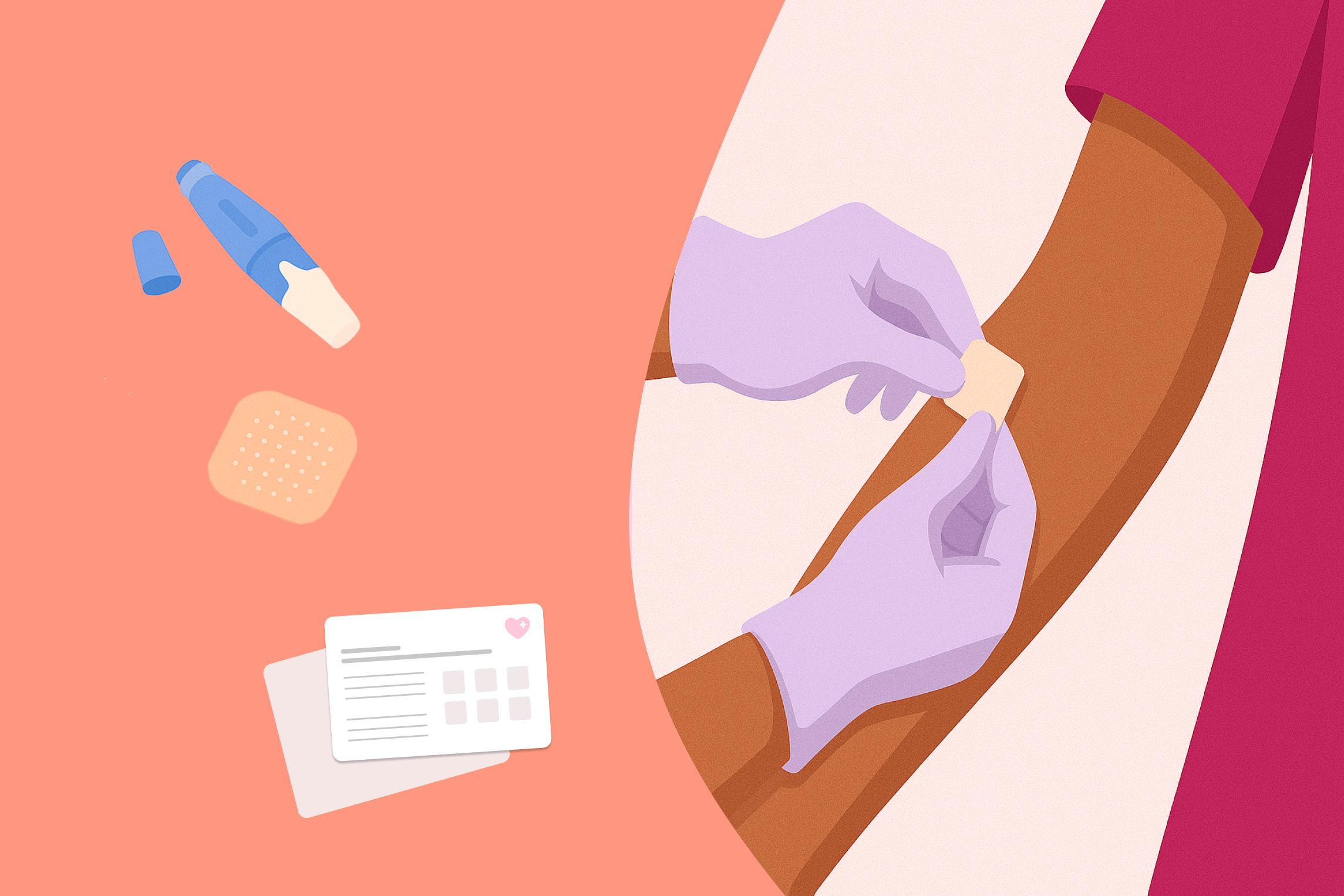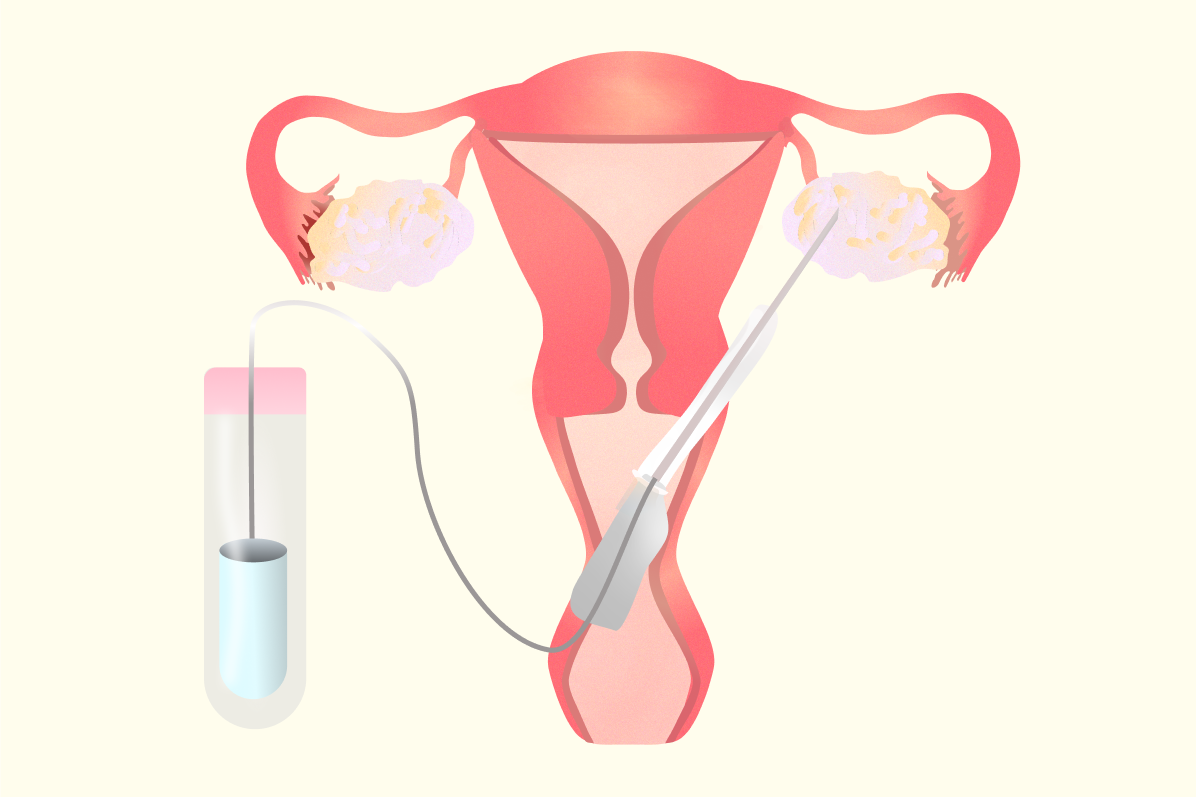Contents
- Egg Freezing for LGBTQ+ Community
- What is Egg Freezing?
- What’s the LGBTQ+ Egg Freezing Timeline
- Egg Freezing Options for LGBTQ+ Individuals
- Egg Freezing Options for Same-Sex Couples
- Egg Freezing Before Hormone Therapy
- Egg Freezing After Hormone Therapy
- Egg Freezing Before Genital Reconstructive Surgery
- Visiting the Fertility Clinics
- Questions You Might be Asked
In an eggshell...
- Egg freezing is only available on the NHS if you’re going to receive medical treatment that might affect your fertility. For example, for cancer treatment / gender reassignment
- Female-at-birth individuals on testosterone therapy may well be able to freeze their eggs
- Egg freezing options for same-sex couples can help safeguard starting a family later
In this article, we’ll focus on female at birth (FAB) individuals thinking about freezing their eggs. This is for you if you’re interested in egg freezing options for same-sex couples, you’re thinking about starting female-to-male testosterone (T) therapy, you’ve already started T therapy, or you’re queer and trying to safeguard your future ability to start a family.
We’ll help guide you through your egg freezing journey, and highlight some unique problems faced during fertility preservation for LGBTQ+ individuals.
Egg Freezing for LGBTQ+ Community
In this article, we’ll focus on female at birth (FAB) individuals thinking about freezing their eggs. This is for you if you’re interested in egg freezing options for same-sex couples, you’re thinking about starting female-to-male testosterone (T) therapy, you’ve already started T therapy, or you’re queer and trying to safeguard your future ability to start a family.
We’ll help guide you through your egg freezing journey, and highlight some unique problems faced during fertility preservation for LGBTQ+ individuals.
What is Egg Freezing?
Egg freezing is a medical procedure that allows FAB individuals to preserve their fertility. Eggs are retrieved from the individual’s ovaries, frozen, and stored at a specialised facility.
As one of the fertility preservation options for LGBTQ+ individuals, the process helps you to try for children later in life. Storing your eggs when you’re younger gives you a higher chance of freezing healthy eggs. This is especially important for individuals thinking of starting T therapy or getting genital reconstructive surgery, as your future fertility is likely to be affected.
Success depends on various factors, including age at the time of egg retrieval. Generally, younger FAB individuals have higher success rates, as their eggs are more likely to be good quality. Read more about success rates here. It is however important to remember that success depends on a number of factors, & egg freezing is not a guarantee of future fertility
What’s the LGBTQ+ Egg FreezingTimeline?
The process of egg freezing involves several steps. First, you’ll use a hormone to stimulate your ovaries to grow multiple follicles which would be expected to contain the eggs. Usually, these will be injections that you can do yourself at home. You’ll take these injections for 10-12 days. During this time, you’ll attend your clinic to monitor how things are going.
Next, you’ll give yourself a trigger injection to mature the eggs. Then, the eggs are retrieved using a minimally invasive procedure called transvaginal ultrasound-guided egg retrieval. This is scheduled for a few days after the trigger injection.
After retrieval, the eggs are carefully frozen and stored for you to use later.
Some individuals will take birth control medication in the 2-3 weeks before starting ovarian stimulation. This can help you plan the whole process to your own timeline.
If you’re taking testosterone therapy, you’ll usually need to stop this around 3-4 months before freezing your eggs.1 The process varies from person to person – it’s important to discuss this with your doctor.
Egg Freezing Options for LGBTQ+ Individuals
Sadly, LGBTQ+ reproductive health and fertility choices aren’t always covered on the NHS. For NHS funding, you have to demonstrate you have fertility issues.
It’s also a bit of a postcode lottery – different areas have different policies for fertility treatment. Even if your egg freezing is funded, you may have to pay to use them in treatment later.2
Cost is the biggest barrier to starting a family for 1 in 5 LGBTQ+ individuals, according to a recent Stonewall survey.
As NHS funding often isn’t an option for egg freezing, many turn to private clinics. Not all clinics have experience with LGBTQ+ egg freezing, and some may have unhelpful attitudes.
For LGBTQ+ family planning in London, take a look at Amilis’ recommended clinics. All have been pre-vetted by our team and offer a respectful, non-judgmental, and sensitive approach as they support you along your egg freezing journey. Amilis also partners with Dr. Lisa Stradiotto from Apricity, a thought leader in the LGBTQ family planning and fertility space.
Once you’ve chosen a clinic, it’s time to start thinking about the egg freezing process. This varies depending on your circumstances, so let’s find out more.
Egg Freezing Options for Same-Sex Couples
You or your partner may be thinking about freezing your eggs. Or maybe you’re single but considering parenthood in the future.
Two cisgender females can’t get pregnant without some sort of assisted reproductive technology (ART). Unless you plan to find a private sperm donor, there’s likely to be some costs associated with your pregnancy journey.
As we mentioned, the NHS will only finance certain fertility treatments.
IVF or artificial insemination with donor sperm is only funded if you’ve tried 6 or more cycles of artificial insemination at a private clinic.3 Egg freezing is only funded when your fertility is likely to be affected by a treatment or specific condition.
This means whether you want to get pregnant now or want to save your eggs to get pregnant later, you’re likely to have to fund this yourself.
The UK Government’s 2022 Women’s Health Strategy aims to reduce financial barriers stopping female same-sex couples getting pregnant. Work is still needed to improve access to fertility preservation for LGBTQ+ individuals.
A private clinic is one of the only egg freezing options for same-sex couples. One or both partners can choose to freeze their eggs, giving you the option to start a family later. This will also give you time to plan for logistics, like whose egg you’ll use, who will carry the embryo, and sourcing donor sperm.
Many types of ART involve fertilising your egg outside of your body. You’re likely to have to go through the ovarian stimulation and egg extraction parts of egg freezing to get pregnant in the future anyway. Freezing your eggs earlier means your eggs are younger, and therefore better quality, and more likely to result in a successful pregnancy.
It’s important to remember, freezing your eggs doesn’t guarantee success. Somewhere between 18-30% of frozen eggs that are fertilised result in a success pregnancy.4 IVF using fresh eggs is successful around 41% of the time.5
Egg Freezing Before Hormone Therapy
Around half of transgender men want to have children.6 The best time to start planning for a family is before starting any testosterone therapy. Both hormone and surgical therapies can affect your fertility.7
Your egg freezing might be covered on the NHS, but this really depends on geography. Integrated care boards (ICBs) decide on funding in England. What each ICB will fund varies a lot. Find out more information from your ICB here.
If the NHS won’t cover your egg freezing treatment, you’ll need to think about going private. If you haven’t started on any testosterone treatment, the medical process of egg freezing will be similar to that for cisgender females. But the psychological process will be significantly different.
Gender-affirming fertility preservation is important. Not all clinics understand the complicated feelings surrounding LGBTQ+ reproductive health. To make it easier to choose, Amilis vets our affiliated clinics to make sure they’re LGBTQ+ friendly.
Egg Freezing After Hormone Therapy
Even if you’ve started testosterone hormone therapy, it’s still possible to freeze your eggs. It’s likely you’ll have to stop your hormone therapy, but you should discuss this with your doctor.
Stopping T therapy can be really difficult, with emotional and physical challenges.8 Certain symptoms of stopping treatment, like your voice changing and period returning, can make feelings of gender dysphoria worse.
On average, FAB individuals usually stop their testosterone treatment for 4 months before egg freezing. The good news is that, after stopping the testosterone, you’re as likely as cisgender females to have a successful egg freezing process.1
The less time you’ve been taking the meds, the less likely your fertility is to be affected.
Remember, egg freezing can be an emotional process, and it’s just one option. Donor eggs are another option for starting a family.
Egg Freezing Before Genital Reconstructive Surgery
It’s essential to think about freezing your eggs before any genital reconstructive surgery. Once your ovaries are removed, it’s too late.
Your frozen eggs can be fertilised, and the embryo carried by a surrogate in the future if your ovaries and womb are removed. Surrogacy is allowed in the UK, but there are various costs involved.
Another option to think about is removing and freezing your ovarian tissue before any surgery. The tissue has to be implanted back in you to be used, though.9 Discuss this further with a fertility specialist.
If you’re considering genital reconstructive surgery, you’ve likely already started on testosterone treatment. You’ll probably need to stop this before the egg freezing process – more on this above.
Visiting the Fertility Clinic
So, you’ve decided you want to freeze your eggs. Great! Your first visit to a fertility clinic can be daunting, though. We’ll talk you through the process.
What to Expect
When visiting a fertility clinic, you’ll discuss sensitive topics. The experience may worsen feelings of gender dysphoria, highlight the inequalities same-sex couples face when accessing family planning services, and involve answering very personal questions.
Not all clinics are created equal. Some, (including our vetted clinics) offer a variety of LGBTQ+ family planning and fertility choices and can support you throughout the process.
Expect a lot of personal questions, on topics like your sex life, periods, and how you identify. We’ve made a list of some things you might be asked so you can be prepared.
Questions You Might be Asked
Your doctor may start the egg freezing consultation with these questions:
- What’s your name?
- What would you like to be referred to as?
- Have you undergone any gender reassignment surgery?
- Do you identify as CIS female or male, or transgender, or something else?
- Are there any topics you don’t wish to discuss?
They’ll then move on to more detailed medical questions, such as:
- Do you have a regular period?
- Are you taking any hormones? If yes, for how long?
- Have you undergone any surgeries?
- Do you have penetrative sex?
- Would you consent to transvaginal scanning and procedures? (If you say no, it’s important to know you may not be able to start the treatment.)
It can help to take a friend or partner to the first appointment, as it can be a lot emotionally.
Hopefully, we’ve given you some useful information on gender-affirming fertility preservation, specifically LGBTQ+ egg freezing. Remember, egg freezing doesn’t always work. It’s also expensive. Weight up the costs associated and consider all the options.
The egg freezing journey can be emotional, but your friends and family are there to support you. For LGBTQ+ family planning in London, Amilis can also help.








.png)

